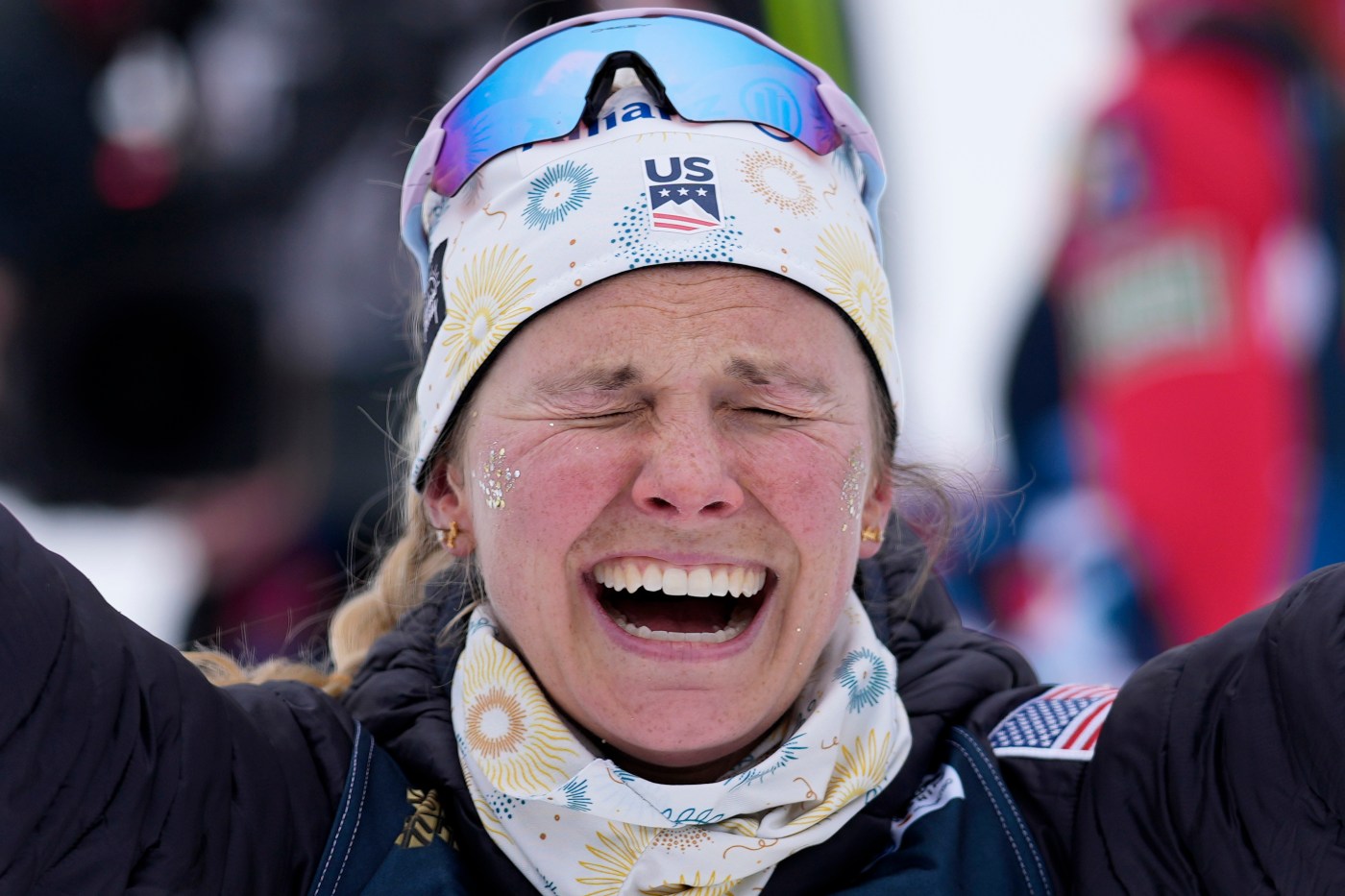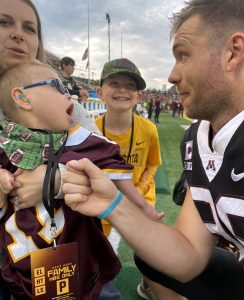
Afton skier Jessie Diggins prioritizing her mental health after eating disorder relapse
Afton native Jessie Diggins loves glitter. It’s been her thing since she was a rising star in cross country skiing at Stillwater High School — long before she was an Olympic gold medalist for Team USA.
She used to get so nervous before races as a kid that she would be completely zapped of energy before she even got to the starting line. She began applying glitter as a way to combat the weight of expectations. The signature has long served as a reminder that the sport she loves is supposed to be fun.
“It’s important to remember that,” Diggins said. “The glitter becomes this promise that I’m going to go out there, I’m going to do the best that I can, and I’m going to be proud of it.”
That’s something the 32-year-old Diggins is continuing to remind herself as she prioritizes her mental health ahead of the World Cup season. She spoke candidly from Ruka, Finland, this week, opening up about an Instagram post in which she revealed that she had experienced a relapse with her eating disorder after being in recovery for 12 years.
“It makes me feel really vulnerable putting myself out there because everyone knows something really big about me,” Diggins said. “I’m trying to change the culture of sport for the better so that we can change the way that we talk about and address mental health.”
It has been a balancing act for Diggins since she famously won a gold medal at the 2018 Winter Olympics. She instantly became the face of the sport and put more and more pressure on herself heading into the 2022 Winter Olympics. She wanted to do everything, while also leaving the door open for the 2026 Winter Olympics, and stretched herself too thin in the process.
“I started getting back into this idea that I have to be perfect,” Diggins said. “It was some pretty binary thinking like, ‘It has to be perfect if I’m going to do it.’ ”
It reached a breaking point this summer.
“Once I realized, ‘OK, I’m not in a good place,’ I needed to reach out to my support team,” Diggins said. “We spent the last 12 years continuously weaving this safety net so it was there in case I needed it.”
Now that the World Cup season is right around the corner, Diggins feels like she’s in a good place. She’s not setting any goals other than striving to be “happy and healthy” as she continues to put her mental health at the forefront. If that means skipping some stuff along the way, she’s willing to do that to keep herself in a good head space.
“I’m not promising that I’m going to be there every single weekend,” she said. “I’m just focusing on taking it one day at a time.”
There’s no doubt Diggins is hoping to compete in the World Cup race that will be held at Theodore Wirth Park in Minneapolis in February. She has been lobbying for an event in her home state since she won the gold medal alongside teammate Kikkan Randall at the 2018 Winter Olympics. It will be the first time a World Cup race has been hosted on U.S. soil in more than 20 years.
“It’s going to be incredible,” Diggins said. “It’s going to be very cool to share this with everyone.”
Though she will unquestionably be an ambassador for the event, Diggins still hasn’t committed to actually competing in her home state. That decision will be made based on how she’s feeling at the time. She’s struggled with the reality that she might not be able to partake in the World Cup race because she doesn’t want to disappoint people.
“It’s going to be hard because I want to give everyone everything that they’re hoping for,” Diggins said. “I want to high five every single person because we’ve worked so hard to make this happen. And I know that I can’t. I think I have to find a way to say I’m doing the best I can, and that’s going to have to be enough.”
As she contemplated her future this summer, Diggins admitted that she considered retirement. The sport had given her so much, and perhaps she was ready to move on to the next chapter of her life. Those thoughts proved to be fleeting as Diggins kept comping back to the fact that she still has room to grow.
“It’s little things that I’m always working on,” she said. “I’m not done trying to reach my potential in the sport.”
Nonetheless, she’s feeling some apprehension heading into the World Cup season, knowing her mental health has taken precedence over her training over the past few months. She doesn’t know how she’s going to feel when she’s pushing herself toward the finish line, for example, which has been a calling card throughout her career.
“That’s kind of scary,” Diggins said. “It’s something I have to embrace.”
In that same breath, Diggins made an important distinction, nothing that not every result is reflective of her mental health.
“It could be that I just had a bad race,” she said. “That’s OK too.”
Maybe the most important thing to remember is that each time she applies the glitter and steps to the starting line will be a victory in itself.
“I’m going to have fun,” Diggins said. “It’s OK for me to smile at the start. That’s part of how I get myself psyched up. I’ve learned when I’m happy and in a good place, that’s also when I’m the most dangerous on the course. Because that’s when I can really push myself hard.”

